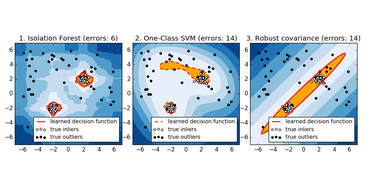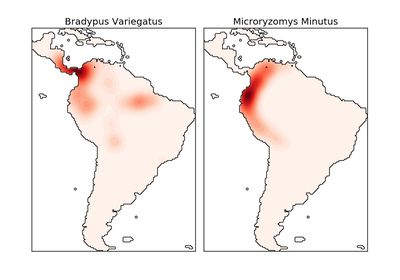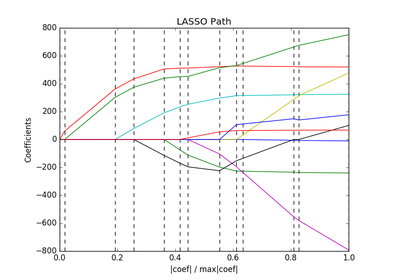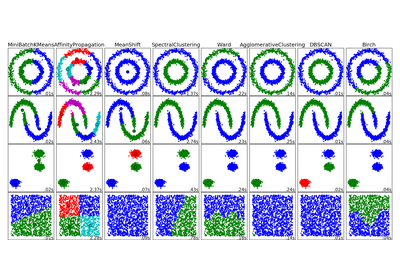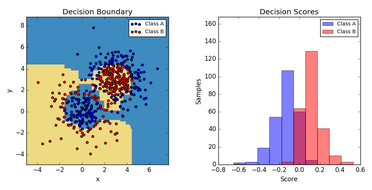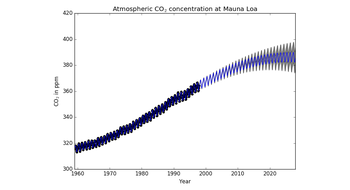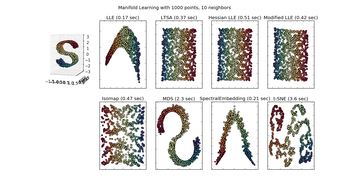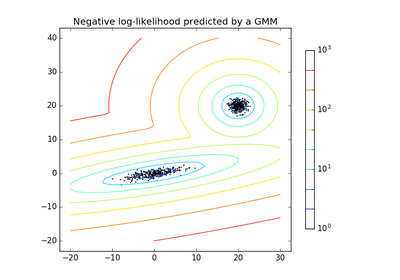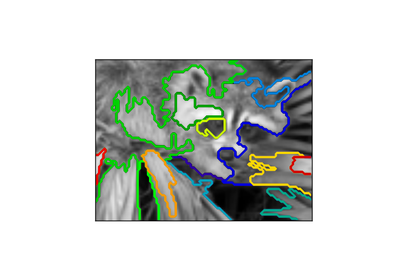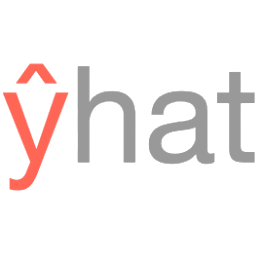Identifying to which category an object belongs to.
Applications: Spam detection, Image recognition. Algorithms:SVM, nearest neighbors, random forest, ...
Predicting a continuous-valued attribute associated with an object.
Applications: Drug response, Stock prices. Algorithms:SVR, ridge regression, Lasso, ...
Automatic grouping of similar objects into sets.
Applications: Customer segmentation, Grouping experiment outcomes Algorithms:k-Means, spectral clustering, mean-shift, ...
Reducing the number of random variables to consider.
Applications: Visualization, Increased efficiency Algorithms:
Comparing, validating and choosing parameters and models.
Goal: Improved accuracy via parameter tuning Modules:
Feature extraction and normalization.
Application: Transforming input data such as text for use with machine learning algorithms. Modules:preprocessing, feature extraction.
News
- On-going development: What's new (Changelog)
- November 2016. scikit-learn 0.18.1 is available for download (Changelog).
- September 2016. scikit-learn 0.18.0 is available for download (Changelog).
- November 2015. scikit-learn 0.17.0 is available for download (Changelog).
- March 2015. scikit-learn 0.16.0 is available for download (Changelog).
- July 2014. scikit-learn 0.15.0 is available for download (Changelog).
- July 14-20th, 2014: international sprint. During this week-long sprint, we gathered 18 of the core contributors in Paris. We want to thank our sponsors: Paris-Saclay Center for Data Science & Digicosme and our hosts La Paillasse, Criteo, Inria, and tinyclues.
- August 2013. scikit-learn 0.14 is available for download (Changelog).
Community
- About us See authors and contributing
- More Machine Learning Find related projects
- Questions? See FAQ and stackoverflow
- Mailing list: scikit-learn@python.org
- IRC: #scikit-learn @ freenode


